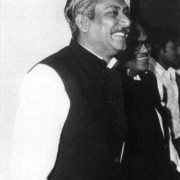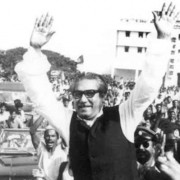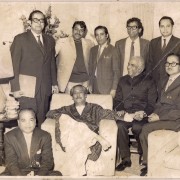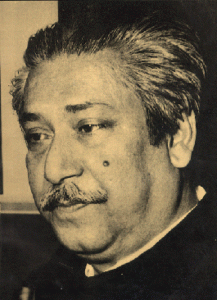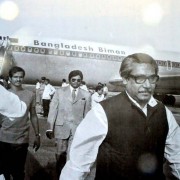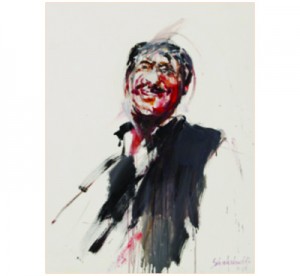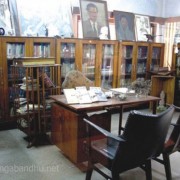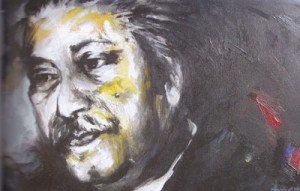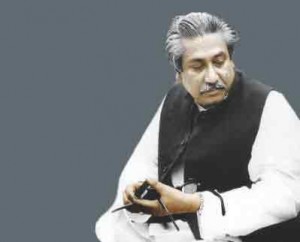 TO some Western observers, the scene stirred thoughts of Pontius Pilate deciding the fates of Jesus and Barabbas. “Do you want Mujib freed?” cried Pakistan President Zulfikar Ali Bhutto, at a rally of more than 100,000 supporters in Karachi. The crowd roared its assent, as audiences often do when subjected to Bhutto’s powerful oratory. Bowing his head, the President answered: “You have relieved me of a great burden.”
TO some Western observers, the scene stirred thoughts of Pontius Pilate deciding the fates of Jesus and Barabbas. “Do you want Mujib freed?” cried Pakistan President Zulfikar Ali Bhutto, at a rally of more than 100,000 supporters in Karachi. The crowd roared its assent, as audiences often do when subjected to Bhutto’s powerful oratory. Bowing his head, the President answered: “You have relieved me of a great burden.”
Thus last week Bhutto publicly announced what he had previously told TIME Correspondent Dan Coggin: his decision to release his celebrated prisoner, Sheik Mujibur (“Mujib”) Rahman, the undisputed political leader of what was once East Pakistan, and President of what is now the independent country of Bangladesh.
Five days later, after two meetings with Mujib, Bhutto lived up to his promise. He drove to Islamabad Airport to see Mujib off for London aboard a chartered Pakistani jetliner. To maintain the utmost secrecy, the flight left at 3 a.m. The secret departure was not announced to newsmen in Pakistan until ten hours later, just before the arrival of the Shah of Iran at the same airport for a six-hour visit with Bhutto. By that time Mujib had reached London—tired but seemingly in good health. “As you can see, I am very much alive and well,” said Mujib, jauntily puffing on a brier pipe. “At this stage I only want to be seen and not heard.”
A few hours later, however, after talking by telephone with India’s Prime Minister Indira Gandhi in New Delhi and with the acting President of Bangladesh, Syed Nazrul Islam, in Dacca, Mujib held a press conference in the ballroom of Claridge’s Hotel. While scores of jubilant East Bengalis gathered outside the hotel, Mujib called for world recognition of Bangladesh, which he described as “an unchallengeable reality,” and asked that it be admitted to the United Nations.
Clearly seething with rage, Mujib described his life “in a condemned cell in a desert area in the scorching heat,” for nine months without news of his family or the outside world. He was ready to be executed, he said. “And a man who is ready to die, nobody can kill.” He knew of the war, he said, because “army planes were moving, and there was the blackout.” Only after his first meeting with Bhutto did he know that Bangladesh had formed its own government. Of the Pakistani army’s slaughter of East Bengalis, Mujib declared: “If Hitler could have been alive today, he would be ashamed.”
Mujib spoke well of Bhutto, however, but emphasized that he had made no promise that Bangladesh and Pakistan would maintain a link that Bhutto anxiously wants to have. “I told him I could only answer that after I returned to my people,” said the sheik. Why had he flown to London instead of to Dacca or some closer neutral point? “Don’t you know I was a prisoner?” Mujib snapped. “It was the Pakistan government’s will, not mine.” While in London, he said, he hoped to meet with British Prime Minister Edward Heath before leaving for a triumphal return to Bangladesh.
Little Choice. Although Mujib’s flight to London rather than to Dacca was something of a surprise, his release from house arrest was not. In truth, Bhutto had little choice but to set him free. A Mujib imprisoned, Bhutto evidently decided, was of no real benefit to Pakistan; a Mujib dead and martyred would only have deepened the East Bengalis’ hatred of their former countrymen. But a Mujib allowed to return to his rejoicing people might perhaps be used to coax Bangladesh into forming some sort of loose association with Pakistan.
In the light of Mujib’s angry words about Pakistan at the London press conference, Bhutto’s dream of reconciliation with Bangladesh appeared unreal. Yet some form of association may not be entirely beyond hope of achievement. For the time being, Bangladesh will be dependent upon India for financial, military and other aid. Bhutto may well have been reasoning that sooner or later the Bangladesh leaders will tire of the presence of Indian troops and civil servants, and be willing to consider a new relation with their humbled Moslem brothers.
Bangladesh, moreover, may find it profitable and even necessary to reestablish some of the old trade ties with Pakistan. As Bhutto put it:
“The existing realities do not constitute the permanent realities.”
Stupendous Homecoming. One existing reality that Bhutto could hardly ignore was Bangladesh’s euphoric sense of well-being after independence. When the news reached Bangladesh that Mujib had been freed, Dacca be gan preparing a stupendous homecoming for its national hero. All week long the capital had been electric with expectation. In the wake of the first reports that his arrival was imminent, Bengalis poured into the streets of Dacca, shouting, dancing, singing, firing rifles into the air and roaring the now-familiar cry of liberation “Joi Bangla.” Many of the rejoicing citizens made a pilgrimage to the small bungalow where Mujib’s wife and children had been held captive by the Pakistani army. The Begum had spent the day fasting. “When I heard the gun fire in March it was to kill the people of Bangladesh,” she tearfully told the well-wishers. “Now it is to demonstrate their joy.”
The people of Bangladesh will need all the joy that they can muster in the next few months. The world’s new est nation is also one of its poorest.
In the aftermath of the Pakistani army’s rampage last March, a special team of inspectors from the World Bank observed that some cities looked “like the morning after a nuclear at tack.” Since then, the destruction has only been magnified. An estimated 6,000,000 homes have been destroyed, and nearly 1,400,000 farm families have been left without tools or animals to work their lands. Transportation and communications systems are totally disrupted. Roads are damaged, bridges out and inland waterways blocked.
The rape of the country continued right up until the Pakistani army surrendered a month ago. In the last days of the war, West Pakistani-owned businesses—which included nearly every commercial enterprise in the country—remitted virtually all their funds to the West. Pakistan International Airlines left exactly 117 rupees ($16) in its account at the port city of Chittagong. The army also destroyed bank notes and coins, so that many areas now suffer from a severe shortage of ready cash. Private cars were picked up off the streets or confiscated from auto dealers and shipped to the West before the ports were closed.
The principal source of foreign exchange in Bangladesh—$207 million in 1969-70—is jute; it cannot be moved from mills to markets until inland transportation is restored. Repairing vital industrial machinery smashed by the Pakistanis will not take nearly as long as making Bangladesh’s ruined tea gardens productive again. Beyond that, the growers, whose poor-quality, lowland tea was sold almost exclusively to West Pakistan, must find alternative markets for their product. Bangladesh must also print its own currency and, more important, find gold reserves to back it up. “We need foreign exchange, that is, hard currency,” says one Dacca banker. “That means moving the jute that is already at the mills. It means selling for cash, not in exchange for Indian rupees or East European machinery. It means getting foreign aid, food relief, and fixing the transportation system, all at the same time. It also means chopping imports.”
The Bangladesh Planning Commission is more precise: it will take $3 billion just to get the country back to its 1969-70 economic level (when the per capita annual income was still an abysmally inadequate $30). In the wake of independence, the government of Bangladesh, headed by Acting President Syed Nazrul Islam and Prime Minister Tajuddin Ahmed, has instituted stringent measures to control inflation, including a devaluation of the rupee in terms of the pound sterling (from 15 to 18), imposing a ceiling of $140 a month on all salaries and limiting the amount of money that Bengalis can draw from banks. Such measures hit hardest at the urban, middle-class base of the dominant Awami League, but there has been little opposition, largely because most Bengalis seem to approve of the moderately socialist course laid out by the government. Last week Nazrul Islam announced that the government will soon nationalize the banking, insurance, foreign trade and basic industries as a step toward creating an “exploitation-free economy.”
Not the least of the new nation’s problems is the repatriation of the 10 million refugees who fled to India. As of last week, Indian officials said that more than 1,000,000 had already returned, most of them from the states of West Bengal and Tripura. To encourage the refugees, camp officials gave each returning family a small gift consisting of a new set of aluminum kitchen utensils, some oil, charcoal, a piece of chocolate, two weeks’ rations of rice and grain and the equivalent of 50¢ in cash.
Within Bangladesh, transit camps have been set up to provide overnight sleeping facilities. The government acknowledges that it will need foreign aid and United Nations assistance. Some U.N. supplies are already stockpiled in the ports, awaiting restoration of distribution facilities.
The political future of Bangladesh is equally uncertain. For the moment, there is all but universal devotion to the words and wisdom of Mujib, but whether he can institute reforms quickly enough to maintain his total hold on his countrymen is another question. Many of the more radical young guerrillas who fought with the Mukti Bahini (liberation forces) may not be content with the moderate course charted by the middle-aged politicians of the Awami League. Moreover, the present Dacca government is a very remote power in country villages where the local cadres of the Mukti Bahini are highly visible.
Already the guerrillas have split into factions, according to India’s Sunanda Datta-Ray in the Statesman. The elite Mujib Bahini, named after the sheik, has now begun to call itself the “Mission,” and one of its commanders, Ali Ashraf Chowdurdy, 22, told Datta-Ray: “We will never lay down our arms until our social ideals have been realized.” Another guerrilla put the matter more bluntly: “For us the revolution is not over. It has only begun.” So far the Mujib Bahini has done a commendable job of protecting the Biharis, the non-Bengali Moslems who earned Bengali wrath by siding with the Pakistani army. But the government is anxious to disarm the Mujib Bahini, and has plans to organize it into a constabulary that would carry out both police and militia duties.
Front Windshields. Despite its ravaged past and troubled future, Bangladesh is still a lovely land to behold, according to TIME’S William Stewart. “There is little direct evidence of the fighting along the main highway from Calcutta to Dacca,” he cabled from Dacca last week, “although in some areas there are artillery-shell craters and the blackened skeletons of houses. Local markets do a brisk business in fruit and staple goods, but by Bengali standards many of the villages are all but deserted.
“Dacca has all the friendliness of a provincial town, its streets filled with hundreds of bicycle-driven rickshas, each one painted with flowers and proudly flying the new flag of Bangladesh. In fact every single car in Dacca flies the national flag, and many have Mujib’s photo on the front windshield. The city is dotted with half-completed construction projects, including the new capital buildings designed by U.S. Architect Louis Kahn. Some day, when and if they are completed, Dacca will find itself with a collection of public buildings that might well be the envy of many a richer and more established capital.
“But whether you arrive at Dacca’s war-damaged airport or travel the tree-lined main road from Calcutta, it is the relaxed, peaceful atmosphere that is most noticeable. Even as travel to Bangladesh becomes more difficult, customs and immigration officials are genuinely friendly and polite, smiling broadly, cheerily altering your entry forms so that you conform with the latest regulations. There is no antagonism to individual Americans. Once it is known that you are an American, however, the inevitable question is: How could the Nixon Administration have behaved the way that it did? There is in fact an almost universal belief that the American people are with them.
“That sentiment was echoed by Tajuddin Ahmed, who told me in an interview: The Nixon Administration has inflicted a great wound. Time heals wounds, of course, but there will be a scar. We are grateful to the American press, intellectual leaders and all those who raised their voices against injustice. Pakistan turned this country into a hell. We are very sorry that some administrations of friendly countries were giving support to killers of the Bengali nation. For the people of Bangladesh, any aid from Nixon would be disliked. It would be difficult, but we do not bear any lasting enmity.’”
Monday, Jan. 17, 1972 @Bangabandhu.com.bd
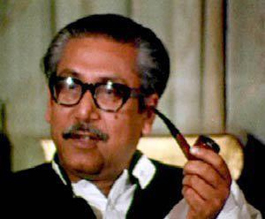 Father of the Nation’ is an honorific bestowed on individuals who are considered the most important in the process of the establishment of a country or a nation. They are instrumental in the birth of their nations by way of liberating them from colonial or other occupation. George Washington is the father of the United States, Peter I of Russia, Sun Yat-sen of China, Sir Henry Parkes of Australia, Miguel Hidalgo of Mexico, Sam Nujoma of Namibia, William the Silent of the Netherlands, Einar Gerhardsm of Norway, Julius Nyerere of Tanzania, Jomo Kenyatta of Kenya, Carlos Mannel of Cuba, Mustafa Kemal of Turkey, Sukarno of Indonesia, Tunku Abdul Rahman of Malaysia, Mahatma Gandhi of India, Don Stephen Senanayake of Sri Lanka and Mohammad Ali Jinnah of Pakistan. So is Bangabandhu, the Father of the Bangladesh nation.
Father of the Nation’ is an honorific bestowed on individuals who are considered the most important in the process of the establishment of a country or a nation. They are instrumental in the birth of their nations by way of liberating them from colonial or other occupation. George Washington is the father of the United States, Peter I of Russia, Sun Yat-sen of China, Sir Henry Parkes of Australia, Miguel Hidalgo of Mexico, Sam Nujoma of Namibia, William the Silent of the Netherlands, Einar Gerhardsm of Norway, Julius Nyerere of Tanzania, Jomo Kenyatta of Kenya, Carlos Mannel of Cuba, Mustafa Kemal of Turkey, Sukarno of Indonesia, Tunku Abdul Rahman of Malaysia, Mahatma Gandhi of India, Don Stephen Senanayake of Sri Lanka and Mohammad Ali Jinnah of Pakistan. So is Bangabandhu, the Father of the Bangladesh nation.
